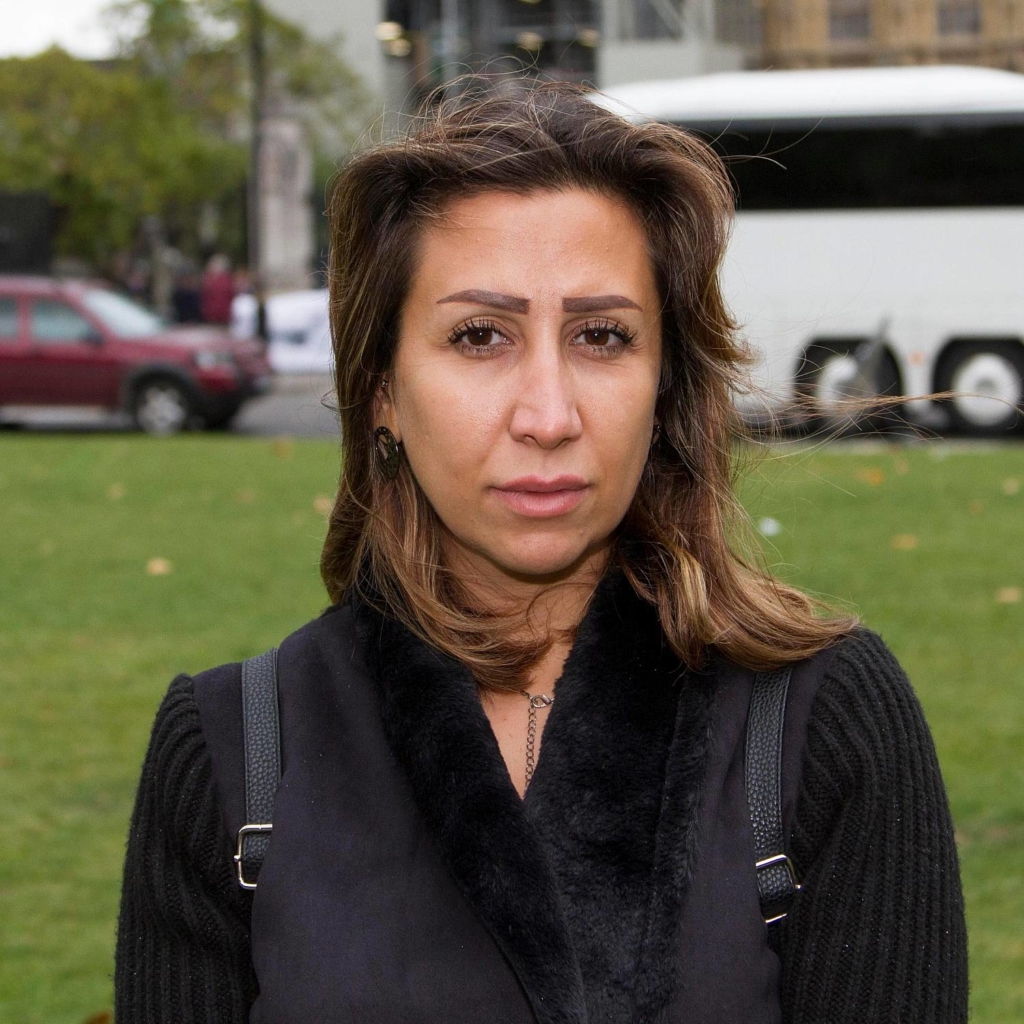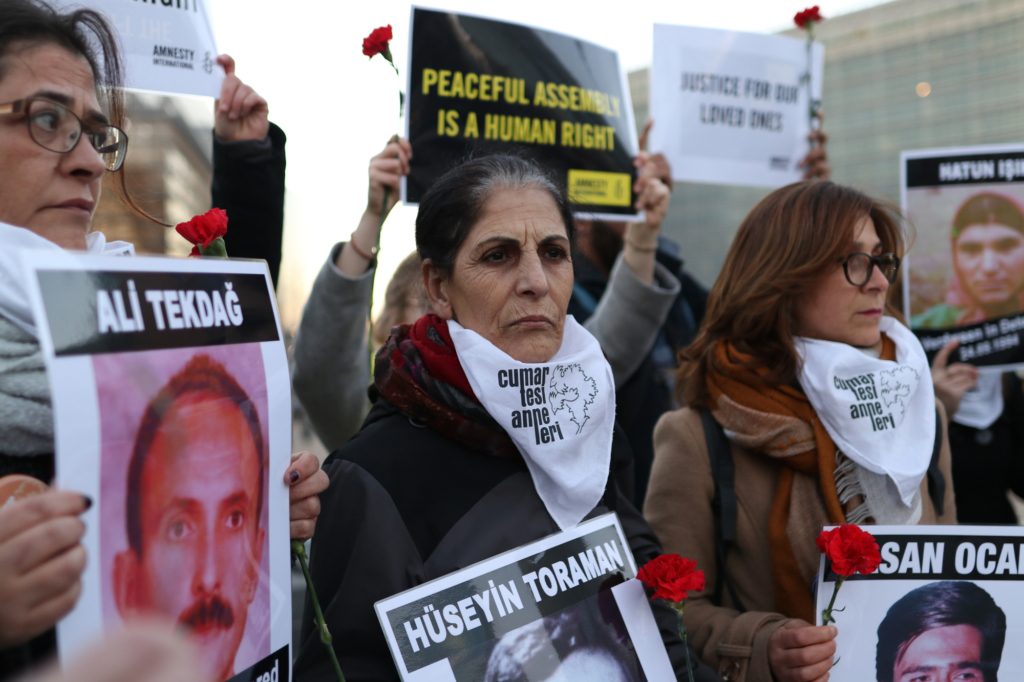“Throughout the civil war in Sri Lanka… it has been women who have been the face of all the disappeared. Women, refusing to disappear, standing in for their loved ones who have been made invisible.”
These are the powerful words of Subha Wijesiriwardena, a Sri Lankan feminist and queer activist. Sri Lanka has one of the highest rates of enforced disappearance in the world – there are at least 60,000 people whose whereabouts are unknown.
Families affected by enforced disappearance live through unimaginable torment. When people vanish without a trace, with the acquiescence of the state who then denies all knowledge, it’s impossible to move on. Every day relatives of the disappeared wake up wondering where their loved ones are. Without the truth they are unable to seek justice or even properly grieve, and sometimes searching for the truth puts people in great danger. This doesn’t mean they stop trying, however. All over the world there are groups of people fighting to find out the fate of their loved ones, determined to get justice and refusing to be silenced.
Because the majority of those forcibly disappeared are men, it is often women – wives, mothers, daughters – who lead the fight for accountability. On International Day of the Victims of Enforced Disappearances, we are celebrating the bravery and determination of the women-led groups who refuse to give up on their loved ones. During these difficult times, they must not be forgotten.
Noura Ghazi is one of these women. In Syria more than 90,000 people have gone missing since the start of the war. Noura’s husband, human rights defender Bassel Khartabil, was arrested in 2012 and in 2015 she lost contact with him. In 2017, she received confirmation that he had been executed.

In 2017 Noura, a human rights lawyer, founded Families for Freedom, one of the first women-led movements in the country. Families for Freedom brings together Syrians from all over the country to campaign and lobby for the return of Syria’s disappeared.
“Families for Freedom has kept me going since my husband was executed,” says Noura. “[I feel] every prisoner’s case is my business and it’s my responsibility to fight for them. I feel women are best placed to deal with this issue, not just because they are the ones most affected by such violation, but because of the leading role they play in building Syria’s future.”
Women are best placed to deal with this issue, not just because they are the ones most affected by such violation, but because of the leading role they play in building Syria’s future
Noura Ghazi
Sandya Eknaligoda’s husband, journalist and cartoonist Prageeth Eknaligoda, was forcibly disappeared in Sri Lanka in January 2010. Sandya has become a prominent figure in Sri Lanka’s human rights movement and her refusal to back down has led to multiple death threats. But Sandya cannot give up. Her unrelenting campaign for justice has forced the government to pursue investigations and accountability.
She says: “Prageeth was the main breadwinner in our family. After he disappeared our entire family maintenance structure broke down. It is the same for many of us from the families of the disappeared. We need to have some system for ensuring compensation and reparation for our loss.”
Sometimes the fight for justice can take decades, but the perseverance of these activists is remarkable.
In Turkey, a group who called themselves the “Saturday People”, and later became known as the “Saturday Mothers”, have met to stage peaceful vigils in Istanbul every week since 1995, experiencing a 10-year break from 1999 to 2009 due to police harassment. They are demanding truth and justice for the hundreds of people forcibly disappeared while in the hands of the state from 1936 to the present day (mostly during the 1980s and 1990s). Over the years, protestors have been attacked by police and, since 25 August 2018 when their 700th weekly vigil was brutally dispersed, they’ve been banned from their traditional meeting place in Istanbul.

Emine Ocak, from Turkey, is in her 80s. Her son Hasan was forcibly disappeared in 1995. After 58 days, Emine found photos of Hasan in forensic records – his face had been so badly beaten that he was barely recognizable.
“I knew Hasan had been taken by the police. I felt it in my gut, the way only a mother can. After finding him, I decided to sit with other relatives of the disappeared in Galatasaray Square – I didn’t want to see anyone disappeared in custody again,” says Emine.
“As our voice began to be heard, the number of people disappeared in custody began to decline. I am convinced that thanks to our struggle, fewer lives were lost. We had become the protectors of people’s right to life.”
Through their persistence, women like Emine have become a thorn in the side of the Turkish government, and the same thing is playing out in countries all over the world.
There are similar movements in Argentina, Brazil, Iran, Egypt, Chile, Mexico and Lebanon. Women across the world are fighting back against silence. Their determination is something perpetrators will have to contend with as long as these women have breath in their bodies. If States are serious about ending enforced disappearances, it’s essential women human rights defenders are at the forefront of the right for justice. They must not be forgotten, they must be recognised and protected.
Amnesty International will celebrate all women human rights defenders, their collectives and demands, with a forthcoming report on 29 November 2019, International Women Human Rights Defenders day.
This story was originally published by Thomson Reuters Foundation.


